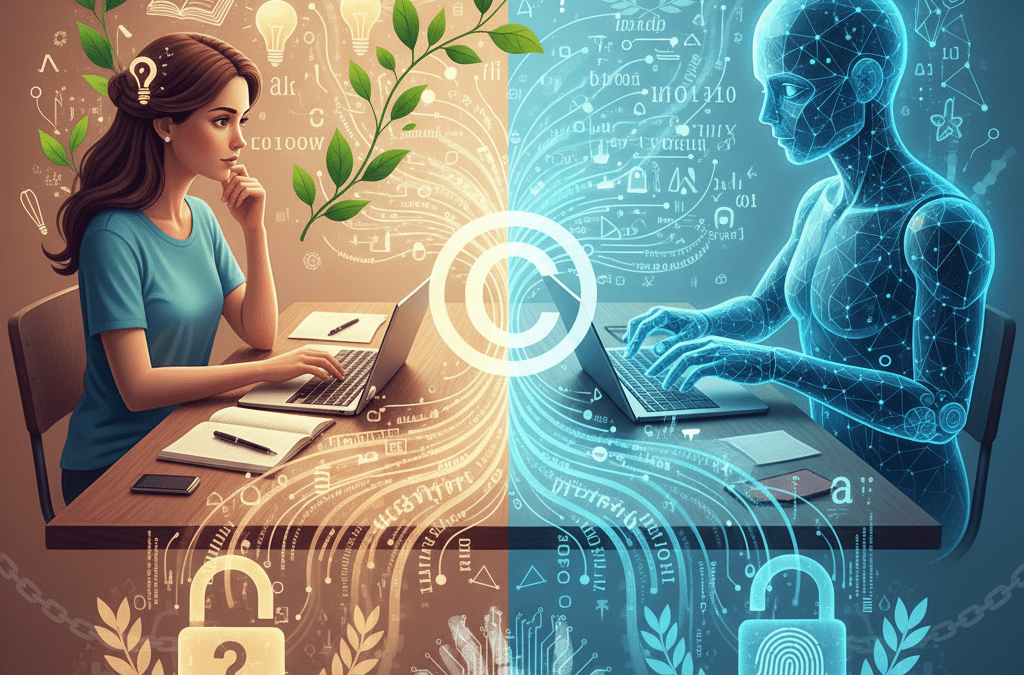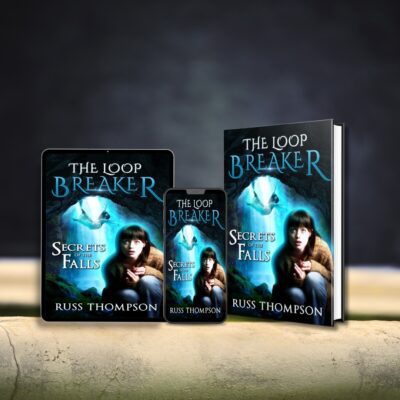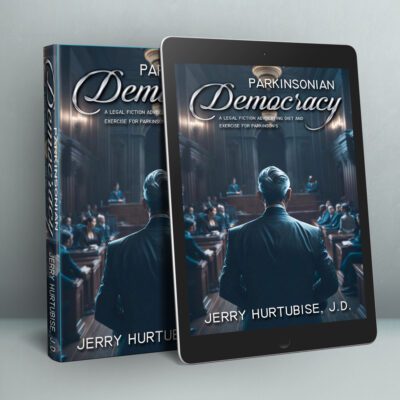AI and copyright are colliding in ways authors can’t ignore. With AI tools generating text faster than ever, the question of ownership is becoming urgent: who really owns the words, the human or the machine? It’s a question echoing through every corner of the publishing world.
Artificial intelligence is no longer a novelty. It’s now a co-creator, a brainstorming partner, and sometimes, a full-blown ghostwriter. Writers use AI to overcome creative blocks, streamline editing, and speed up production. But as these tools evolve, so does the confusion about ownership and originality. What happens when the line between human and machine creativity blurs?
As AI reshapes how we create, edit, and distribute stories, copyright law is racing to keep up. What once felt like a distant possibility—AI authorship—is now an everyday reality for writers, editors, and publishers.
Here’s where things get tricky: under current U.S. and international copyright rules, only humans can legally hold authorship. That means if AI-generated content makes up a major part of your work, ownership might not be as simple as saving your manuscript. The rise of AI has forced everyone, from indie authors to major publishing houses, to rethink what originality, authorship, and creative labor really mean. AI and copyright aren’t just legal terms anymore—they’re creative boundaries that shape how we write and publish.
AI and Copyright: The Gray Zone of Authorship
Copyright affects your livelihood. If AI text can’t be copyrighted, is your work at risk when you use AI at all? Not necessarily. As long as you guide, edit, and refine the material, you remain the author in the eyes of the law.
Still, publishers and digital platforms might start asking for proof of “human authorship.” That’s why understanding how AI and copyright intersect is essential for every writer in 2025.
Related Reading: AI and Translation for Authors
AI and Copyright Implications for Authors
For authors, the copyright issue is both a legal technicality and a livelihood concern. If AI text can’t be copyrighted, does that mean your book is at risk if you use AI at all? Not necessarily. Copyright law recognizes human contribution, so if you use AI to suggest ideas or rough drafts but shape the final product yourself, the copyright is still yours.
But if publishers or platforms start requiring proof of “human authorship,” things could get complicated. That’s why understanding the overlap of AI and copyright in publishing is essential in 2025.
Related Reading: Check out U.S. Copyright Office – Artificial Intelligence Guidance, which explains current legal stances on AI-generated works.
Where Human Creativity Still Rules
AI can rearrange data, mimic styles, and produce fluent sentences. But it can’t replicate human emotion, intention, or lived experience. That’s what gives your writing its depth, and it’s exactly what copyright law protects. Your words matter because they carry your perspective. Use AI to support your process, but let your creative instincts lead.
So, Who Really Owns the Words?
Right now, the rule is simple: you own what you actively create. Use AI for brainstorming, summarizing, or experimenting, but keep your human authorship at the heart of the process. Copyright laws will keep evolving, but one truth stays constant. Your voice is irreplaceable.
At Winterwolf Press, we believe authors deserve clarity in a fast-changing publishing world. Whether AI inspires you or unsettles you, remember this: your creativity defines the work, not the tool that helps shape it.







